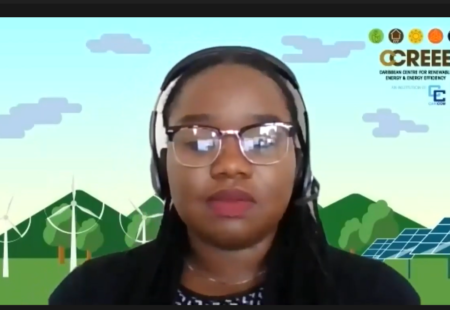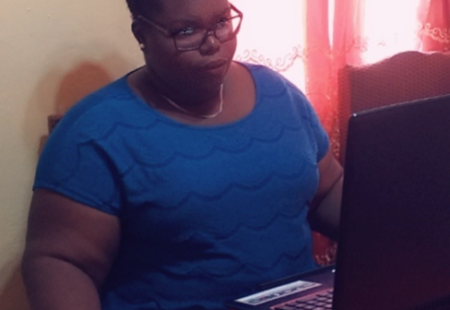Bite-sized Policy: Dominica and the UNFCCC

By: Davitia James
After the publication of the recent Intergovernmental Panel on Climate Change (IPCC) report, there’s a lot of buzz about emissions and climate policy. What does that mean for Small Island Developing States (SIDS) like Dominica?
Background to climate change policy and the UNFCCC:
The United Nations Framework Convention on Climate Change (UNFCCC) is an agreement signed by 197 countries in 1994. The main goal of the UNFCCC is keeping greenhouse gas emissions as low as possible to limit humanity’s negative effects on the climate.
As part of the commitment to the Convention, Dominica pledged to cut national emissions to 44.7% less than the levels were in 2014 by 2030. The areas targeted in this goal include the energy, solid waste, transportation and manufacturing/construction industries.
The UNFCCC spawned other critical climate agreements like the Kyoto Protocol and the Paris Agreement. Under the Kyoto Protocol of 1997, industrial nations were encouraged to put forward the bulk of the funding since they contribute the most to global gas emissions. The 2015 Paris Agreement (that the USA famously pulled out of in 2020, then rejoined in 2021) outlines financial steps and adaptation goals to cap global warming at a rise of 1.5 ℃.
Emissions and Energy
As part of the Paris Agreement, the IPCC looked more closely at emissions and global trends. Unfortunately, the new IPCC report confirms that 1.5 ℃ of heating will occur by 2030 – 2052 if current activities continue. Luckily, we know that there are countless ways to pivot to a more sustainable path. We can avoid extreme warming and give the planet time to stabilize the climate if we act quickly to slash emissions.
As SIDS, the region’s greenhouse gas emissions are minor. Still, Dominica has promised to lower emissions from energy production by 98.6% before 2030. This target matches the national goal to be fully powered by renewable energy by the same year. So, we should expect innovative adaptations across the energy sector on the island, along with ways to cut emissions from other utilities. The geothermal power plant in the Roseau Valley should replace diesel powered electricity sources when it begins operations, producing enough energy to meet our needs and supply power to our neighbours in Martinique and Guadeloupe. Energy for other utilities will also shift to renewable sources – evidenced by plans to upgrade Dominica Water and Sewerage Company Limited stations to solar power. Suggestions like switching the government fleet to electric cars once electricity sources are fully sustainable have also been advanced.
Over the last 8 weeks, I worked as an intern with the Caribbean Centre for Renewable Energy and Energy Efficiency (CCREEE), collecting data for the annual Energy Report Card (ERC) for Dominica under the guidance of an expert supervisor. These report cards cover the status of the electricity and renewable sectors, policies in place, and planned projects to improve energy efficiency or move away from non-renewable resources in each CARICOM territory. The ERCs can assist Dominica by providing a detailed database that can support long-term planning for climate and energy resilience.
The past two months allowed me access to policy documents, explanations from experts, and time to absorb them that I otherwise would not have had. The CCREEE developed the CARICOM Energy Knowledge Hub to make sharing this type of information easier across the region. The ERCs will be available on the Hub – great news for those who don’t have weeks to spend contacting institutions directly. The UNFCCC goals and the Energy Knowledge Hub allow us to learn from our CARICOM colleagues who are also working towards similar energy targets but by different methods. For example, Barbados has the same renewable energy goal and target year as Dominica, but using solar photovoltaics. St. Lucia has plans for a combined geothermal, wind, and solar approach. We have the chance to support each other, and avoid repeating mistakes while we work on climate challenges in the region.
Now, if you hear defeated discussions based on this IPCC report, you can now chime in that it isn’t doom and gloom, it’s a call to move quickly and plan boldly. Something that CARICOM nations have already been doing.



